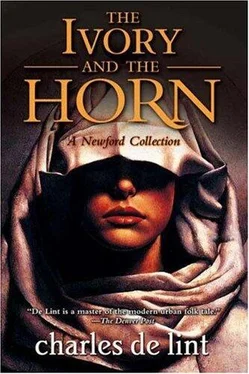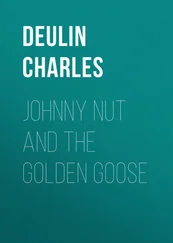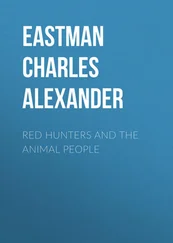I brought away some human contact.
10
In Frank Estrich's private place there's a small dog, trembling in the weeds that grow up along the dirt road where Frank's walking. The dog is just a mutt, lost and scared. You see them far too often in the country— some poor animal that's outlived its welcome in a city home, so it gets taken for a ride, the car slows down, the animal's tossed out—"returned to nature"— and the problem's solved.
Frank found a stray the summer before, but his dad killed it when Frank brought it home and tried to hide it in the barn. And then his dad took the belt to Frank. His dad does that a lot, most of the time for no other reason than because he likes to do it.
Frank always feels so helpless. Everybody's bigger than him: his father, his uncles, his brothers, the other kids. Everybody can rag on him and there's not a thing he can do about it. But this dog's not bigger than him.
Frank knows it's wrong, he knows he should feel sorry for the little fella because the dog's as unwanted as Frank feels he is most of the time, but I can see in his head that he's thinking of getting his own back. And if he can't do it to those that are hurting him, then maybe he'll just do it to the dog.
Doesn't matter how it cringes down on its belly as he approaches it, eyes hopeful, body shaking. All Frank can think of is the beating he got earlier tonight. Dad took him out to the barn, made him take down his pants, made him bend over a bale of hay as he took off his belt...
I've already dealt with the father, but I know now how that's not enough. The seed's still lying inside the victim. Maybe it'll turn Frank into what his father calls a "sissy-boy," scared of his own shadow; more likely it'll make Frank grow up no different from his father, one more monster in a world that's got too many already.
So I have to teach Frank about right and wrong— not like his father did; not with arbitrary rules and punishments, but in a way that doesn't leave Frank feeling guilty for what was done to him, in a way that lets him understand that self-empowerment has got nothing to do with what you can do to someone else.
It's a long, slow process of healing that's as hard for me to put into words as it is for me to explain how I can step into other people's dreaming places. But it's worth it. Not just for the victims like Frank that I get to help, but for myself as well.
What happened to me before was that I was wearing myself out. I was putting so much out, but getting nothing back. I was living only in the shadows, living there so long that I almost forgot there was such a thing as sunlight.
That's what I do, I guess. I still step into the monsters' heads and turn them off, but then I visit the dreaming places of their victims and show them how to get back into the sunlight. The funny thing is, that when I'm with someone like Frank and he finally gets out of the shadows, I don't leave anything of myself behind. But they leave something in me.
Dried blood and rose petals.
Bird bones and wood ash.
It's all just metaphor for spirit— that's what Annie would say. I don't know. I don't need to put a name to it. I just use it all to reclaim my own dreaming place and keep it free of shadows.
Remember all is but a poet's dream,
The first he had in Phoebus' holy bower,
But not the last, unless the first displease.
—John Lyly, from The Woman in the Moone
1
I've heard it said that there are always two sides to a story: There's the official history, the version that's set onto the page, then flied away in the archives where it waits for when the librarian comes to retrieve the facts to footnote some learned paper or discourse. Then there's the way an individual remembers the event; that version sits like an old woman on a lonely porch, creaking back and forth in her wicker rocker as she waits for a visitor.
I think there's a third version as well: that of the feral child, escaping from between the lines, from between how it's said the story went and how it truly took place.
I'm like that child. I'm invariably on the edge of how it goes for everyone else. I hear them tell the story of some event that I took part in and I can scarcely recognize it. I'd like to say that it's because I'm such a free spirit— the way Jilly is, always bouncing around from one moment to the next— but I know it's not true. The reason I'm not part of the official story is because I'm usually far from civilization, lost in wildernesses of my own making, unaware of either the library or the porch.
I'm just not paying attention— or at least not paying attention to the right thing. It all depends on your perspective, I suppose.
2
September was upon us and I couldn't have cared less, which is weird for me, because autumn's usually my favorite time of year. But I was living through one of those low points in my life that I guess everyone has to put up with at one time or another. I went through the summer feeling increasingly tired and discouraged. I walked hand in hand with a constant sense of foreboding, and you know what that's like: If you expect things to go wrong, they usually do.
I hadn't met a guy I liked in ages— at least not anyone who was actually available. Every time I sat down to write, my verses came out as doggerel. I was getting cranky with my friends, but I hated being home by myself. About the only thing I was still good at was waitressing. I've always liked my job, but as a lifelong career choice? I don t think so.
To cheer me up, Jilly and Sophie took me to the final performance of A Midsummer Night's Dream at the Standish. The play was a traditional production— Lysander and Demetrius hadn't been rewritten as bikers, say, and the actors had performed in costume, not in the nude. Being a poet myself, I lean toward less adventurous productions because they don't get in the way of the words.
I'd been especially taken with the casting of the fairy court tonight. The director had acquired the services of the Newford Ballet for their parts, which lent the characters a wonderfully fey grace. They were so light on their feet, I could almost imagine that they were flying at times, flitting about the stage, rather than constrained by gravity to walking its boards. The scene at the end where the fairies sport through the Duke's palace had been so beautifully choreographed that I was almost disappointed when the spotlight narrowed to capture Puck in his final speech, perched at the edge of the stage, fixing us in our seats with a half-mocking, half-feral gaze that seemed to belie his promise to "make amends."
The actor playing Robin Goodfellow had been my favorite among a talented cast, his mobile features perfectly capturing the fey charm and menace that the idea of fairy has always held for me. Oberon was the more handsome, but Puck had been simply magic. I found myself wishing that the play was just beginning its run, rather than ending it, so that I could go back another night, for his performance alone.
Jilly and Sophie didn't seem quite as taken with the production. They were walking a little ahead of me, arguing about the authorship of Shakespeare's works, rather than discussing the play we'd just seen.
"Oh, come on," Sophie was saying. "Just look at the names of some of these people: John Thomas Looney. S. E. Silliman. George Battey. How can anyone possibly take their theories seriously?"
"I didn't say they were necessarily right," Jilly replied. "It's just that when you consider the historical Shakespeare: a man whose father was illiterate, whose kids were illiterate, who didn't even bother to keep copies of his own work in his house... It's so obvious that whoever wrote the plays and sonnets, it wasn't William Shakespeare."
Читать дальше












